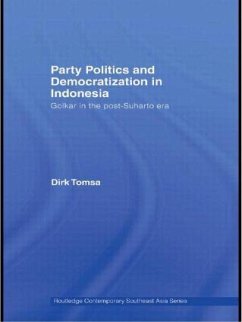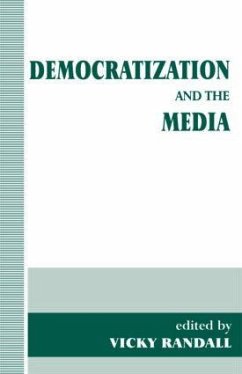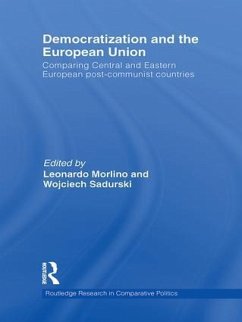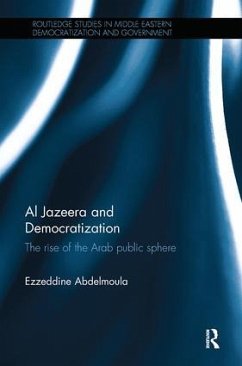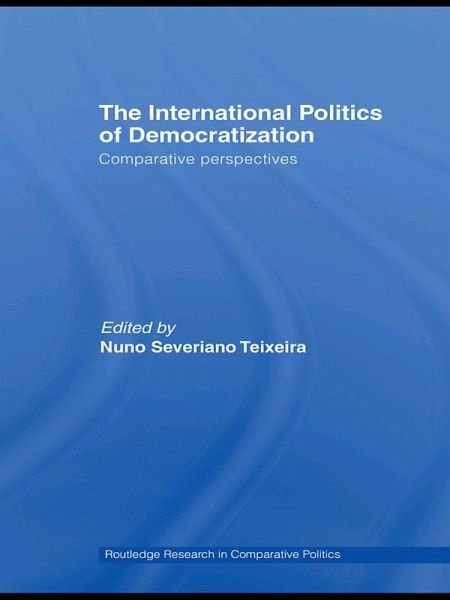
The International Politics of Democratization
Comparative perspectives
Herausgeber: Teixeira, Nuno Severiano

PAYBACK Punkte
21 °P sammeln!
This book examines the international dimensions of democratization processes, showing the degree to which international actors, ranging from states to non-governmental players, have an influence on what were once thought of as exclusively domestic processes of political change. The contributors to the volume look at changes in foreign policy resulting from transitions to democracy in a number of countries and regions. Some of the areas covered include: Portugal and Spain in Europe in the 1970s Brazil and Argentina in Latin America from the early 1980s Eastern and Central Europe in the 1990s Va...
This book examines the international dimensions of democratization processes, showing the degree to which international actors, ranging from states to non-governmental players, have an influence on what were once thought of as exclusively domestic processes of political change. The contributors to the volume look at changes in foreign policy resulting from transitions to democracy in a number of countries and regions. Some of the areas covered include: Portugal and Spain in Europe in the 1970s Brazil and Argentina in Latin America from the early 1980s Eastern and Central Europe in the 1990s Various countries in the Arab World The chapters adopt a theoretical and empirical perspective: while the two introductory chapters of the book place a special emphasis on interpretation and quantitative analysis of regime change and the role of international actors in such processes, the remaining chapters examines specific case studies. The International Politics of Democratization will be of interest to students and researchers of International Relations, Politics and Democracy.






